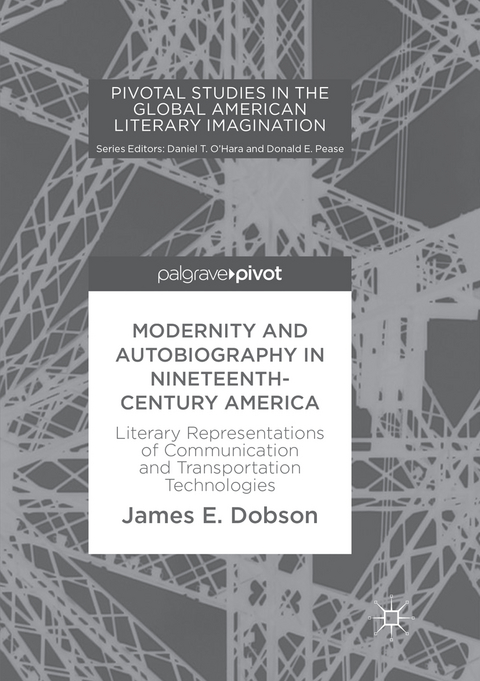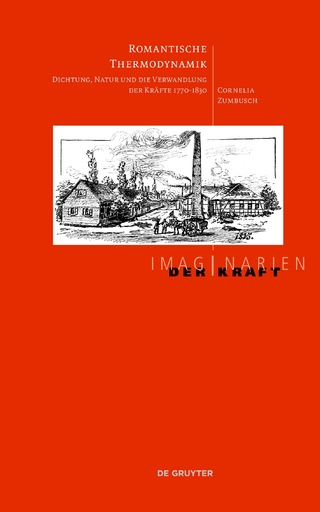
Modernity and Autobiography in Nineteenth-Century America
Literary Representations of Communication and Transportation Technologies
Seiten
2018
|
1. Softcover reprint of the original 1st ed. 2017
Springer International Publishing (Verlag)
978-3-319-88412-7 (ISBN)
Springer International Publishing (Verlag)
978-3-319-88412-7 (ISBN)
lt;p>This book examines temporal and formal disruptions found in American autobiographical narratives produced during the end of the nineteenth century. It argues that disruptions were primarily the result of encounters with new communication and transportation technologies. Through readings of major autobiographical works of the period, James E. Dobson argues that the range of affective responses to writing, communicating, and traveling at increasing speed and distance were registered in this literature's formal innovation. These autobiographical works, Dobson claims, complicate our understanding of the lived experience of time, temporality, and existing accounts of periodization. This study first examines the competing views of space and time in the nineteenth century and then moves to examine how high-speed train travel altered American literary regionalism, the region, and history. Later chapters examine two narratives of failed homecoming that are deeply ambivalent about modernity and technology, Henry James's The American Scene and Theodore Dreiser's A Hoosier Holiday, before a reading of the telephone network as a metaphor for historiography and autobiography in Henry Adams's The Education of Henry Adams.
James E. Dobson is Lecturer at Dartmouth College where he conducts research on American literature, autobiography, and the digital humanities. He is the author of essays on Mark Twain, Lucy Larcom, Shirley Jackson, and Ambrose Bierce and several addressing computational methods and text mining.
Introduction: The American Modernity Crisis and Technology.- Chapter One: Modernity and the Dialectic of Detachment.- Chapter Two: Henry James' Failed Homecoming.- Chapter Three: Theodore Dreiser, Temporary Homes, and the Compensatory "Commemorative State".- Chapter Four: The Telephonic Self: Non-Systemic Systems and Autobiographical Self-Representation.
| Erscheint lt. Verlag | 15.8.2018 |
|---|---|
| Reihe/Serie | Pivotal Studies in the Global American Literary Imagination |
| Zusatzinfo | VII, 117 p. |
| Verlagsort | Cham |
| Sprache | englisch |
| Maße | 148 x 210 mm |
| Gewicht | 177 g |
| Themenwelt | Geisteswissenschaften ► Sprach- / Literaturwissenschaft ► Anglistik / Amerikanistik |
| Geisteswissenschaften ► Sprach- / Literaturwissenschaft ► Literaturgeschichte | |
| Geisteswissenschaften ► Sprach- / Literaturwissenschaft ► Literaturwissenschaft | |
| Schlagworte | affect theory • American hotel culture and alienation • American modernity crisis • Henry Adams' views on historiography • Henry James • Life-Writing • modernity, alienation, and Henry James' The Americ • modernity, alienation, and Henry James' The American Scene • modern technology and the fin-de-siècle autobiogra • modern technology and the fin-de-siècle autobiography • neurological modernity • Phenomenology and autobiography • Railroads, telephones, and 19th-century American a • Railroads, telephones, and 19th-century American autobiography • Railroads, telephones, and 19th-century American autobiography • Railroad travel and space-time compression • spatial distancing in "Rip Van Winkle" • temporal confusion and A Hoosier Holiday • The Autobiography of Mark Twain • The Education and Henry Adams • the effect of the telephone on the self • Theodore Dreiser • Travel Memoir • Travel writing |
| ISBN-10 | 3-319-88412-3 / 3319884123 |
| ISBN-13 | 978-3-319-88412-7 / 9783319884127 |
| Zustand | Neuware |
| Haben Sie eine Frage zum Produkt? |
Mehr entdecken
aus dem Bereich
aus dem Bereich
Dichtung, Natur und die Verwandlung der Kräfte 1770-1830
Buch | Hardcover (2023)
De Gruyter (Verlag)
59,00 €


